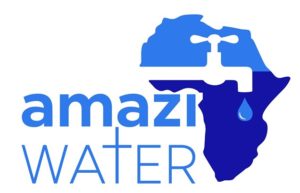BUJUMBURA, BURUNDI – Burundi is a landlocked African country about the size of the state of Maryland. It is bordered by Rwanda to the north, Tanzania to the east, and the DRC to the west. Lake Tanganyika comprises much of its southern border. One of the poorest nations in the world, it has been called “The Forgotten Country.”
Access to clean water is one of the major problems faced by Burundi’s 12 million residents. Ironically, the nation has extensive underground water tables. It is an ideal region for drilling deep water wells that can make water scarcity a distant memory. It just lacked the resources to locate and drill those wells.
The Beginning of Amazi Water
 In 2013, the Lord drew John and Caelene Peake together with Robert and Elizabeth Vanman. The Peake’s had spent the previous decade focused on Burundi. The Vanman’s lives had been focused on technology in the water industry. Both families’ lives were centered on Jesus Christ.
In 2013, the Lord drew John and Caelene Peake together with Robert and Elizabeth Vanman. The Peake’s had spent the previous decade focused on Burundi. The Vanman’s lives had been focused on technology in the water industry. Both families’ lives were centered on Jesus Christ.
The Peakes were ready to move to Burundi, and the Vanmans were ready to go all in to create Burundi’s first and only in-country, dedicated water organization. Robert Vanman had the resources with which to purchase water drilling rigs and to hire engineers, hydrogeologists, construction teams, staff, and community workers to turn the vision into a reality.
Under its original name, Think East Africa, Amazi Water drilled its first two wells in 2014. During a trip to Burundi that year, Vanman committed to funding more than 100 wells. By 2019, the group had completed more than 400 clean water sites. Just a year earlier, the team defined its vision as “Water for everyone in Burundi by 2028.” More importantly, Amazi Water consists of Christians committed to “serving our Lord and Savior Jesus Christ by sharing the Gospel and regarding the poor.”
The Process of Amazi Water
Someone at Amazi Water has said, “It takes a lot more than a hole in the ground to get water.” Like any successful project, it takes a well-conceived and disciplined process. Amazi Water’s process is comprised of the eight steps outlined on their website.
- Site Selection.
- Find a reliable local partner.
- Secure GIS data.
- Visit sites and perform geological surveys.
- Gain approval from the water authorities.
- Assess Current Water Sources.
- Obtain a detailed evaluation of current sources.
- Assess the effects of poor water quality on the local population, including health and education.
- Conduct a Hydrogeological Survey.
- Release engineers, hydrogeologists, and construction teams to drill, case, and cement the new well and pump.
- Offer Hygiene Training.
- For key governmental, educational, ecclesiastical, community, and health officials
- For community members
- Share the Gospel. Communicate the good news of Jesus Christ’s death on the cross for the forgiveness of sins.
- Open the Well. Celebrate!
- Maintain the Well. Sustainability is all about maintenance. Amazi Water provides its own in-country technicians and trains community members to handle routine repairs.
Burundi is on the way to becoming a more beautiful land, “refreshed and renewed, overflowing with change and opportunity” as a result of the committed Christians serving at every level of the team. As Amazi Water joins hand-in-hand with other like-minded NGOs, the goal of clean water access for every community in Burundi is already appearing to be obtainable and sustainable.
Read more news on Non Profit Organizations, Clean Water, and Humanitarian Services.
Sources:
- CIA World Factbook, Burundi
- Amazi Water, ECFA
- Amazi Water, Official Website




